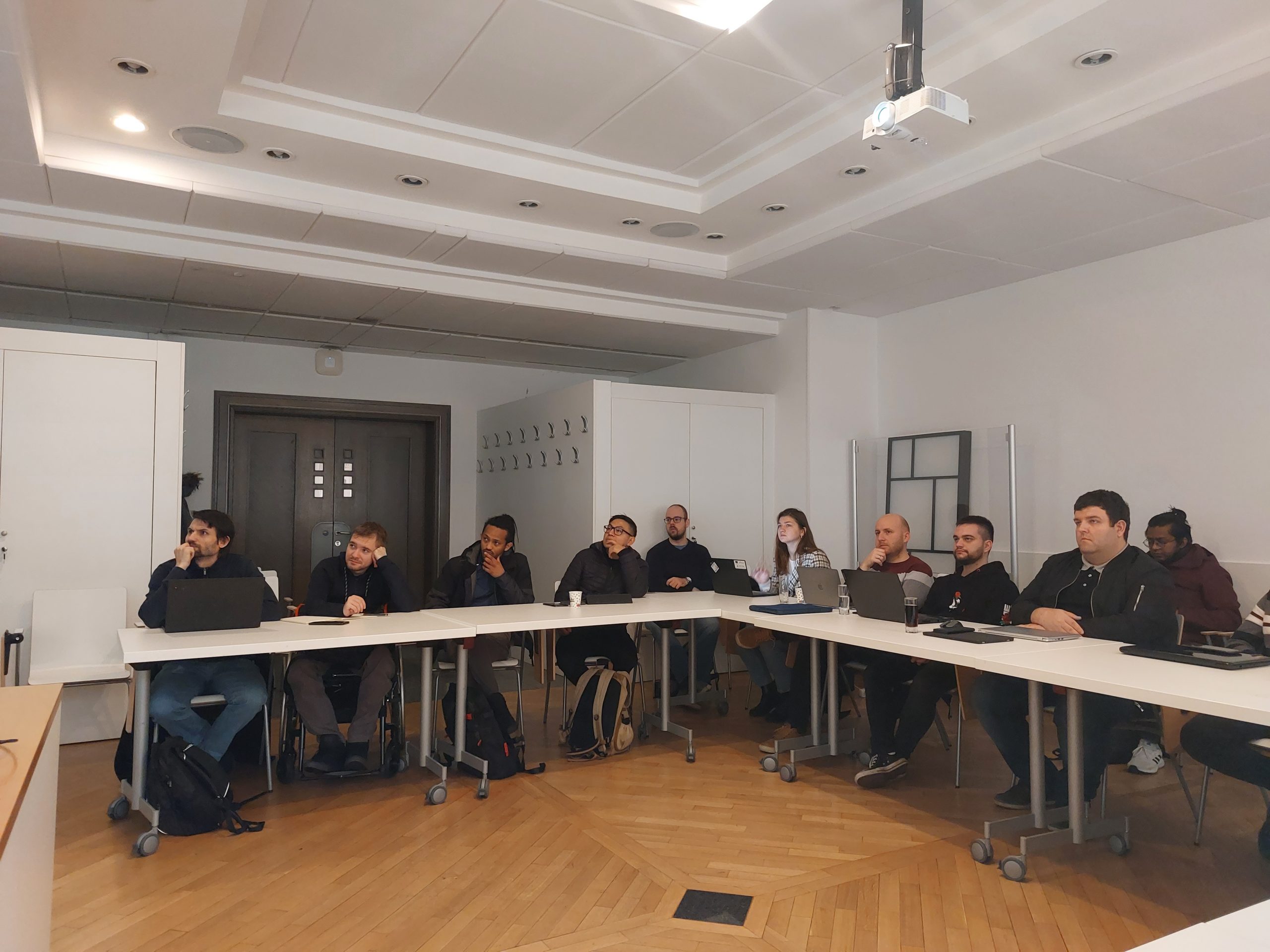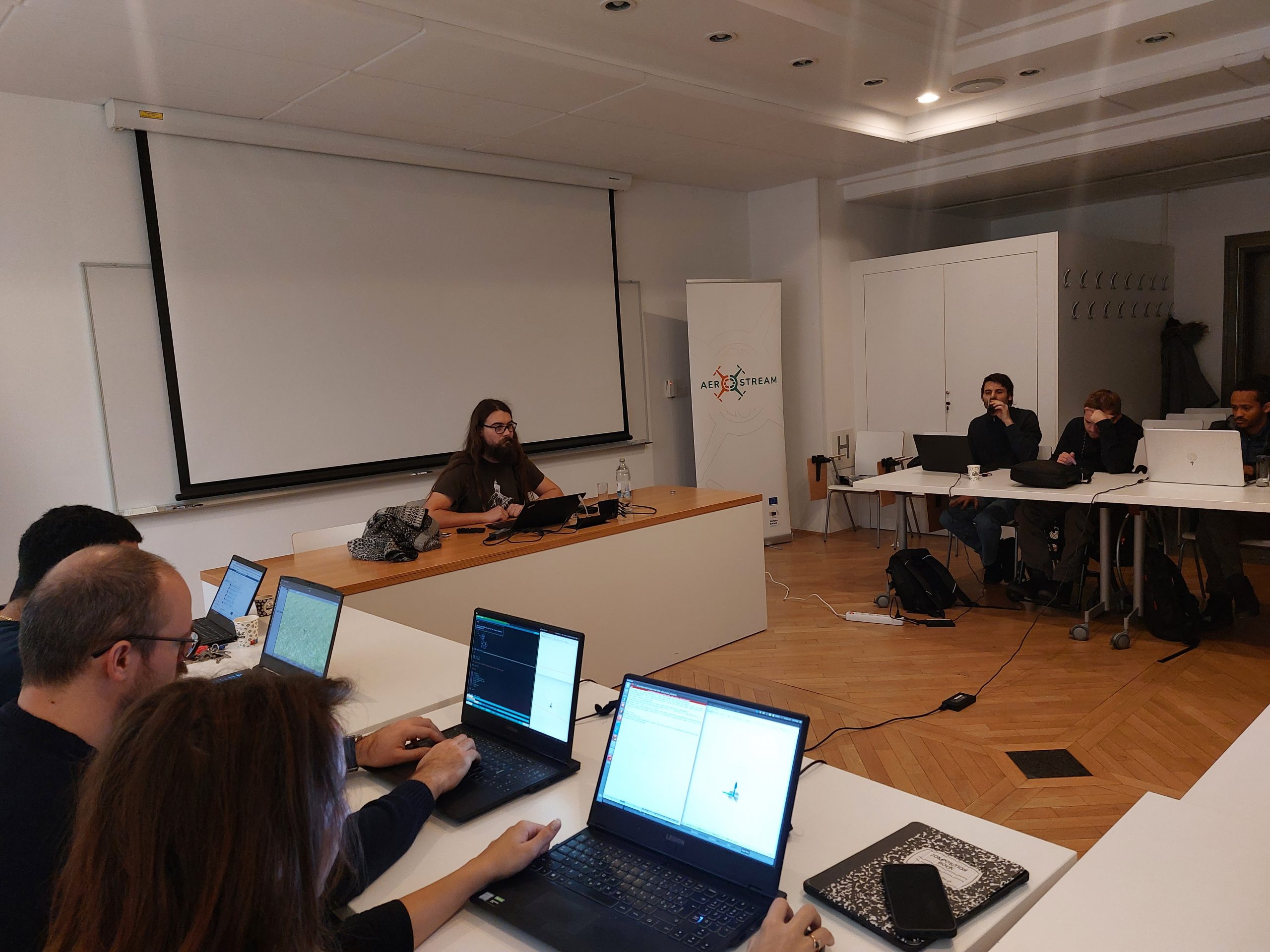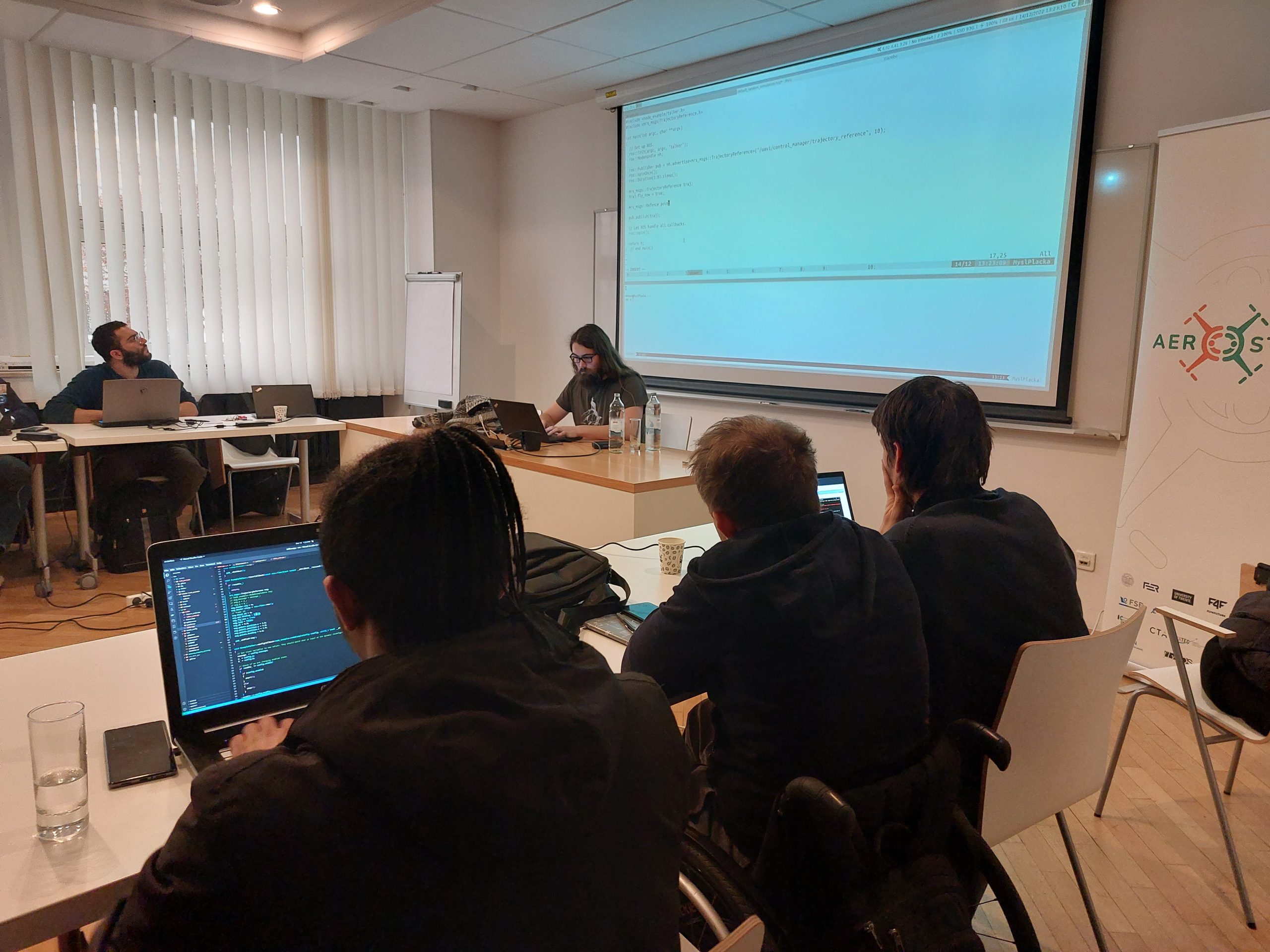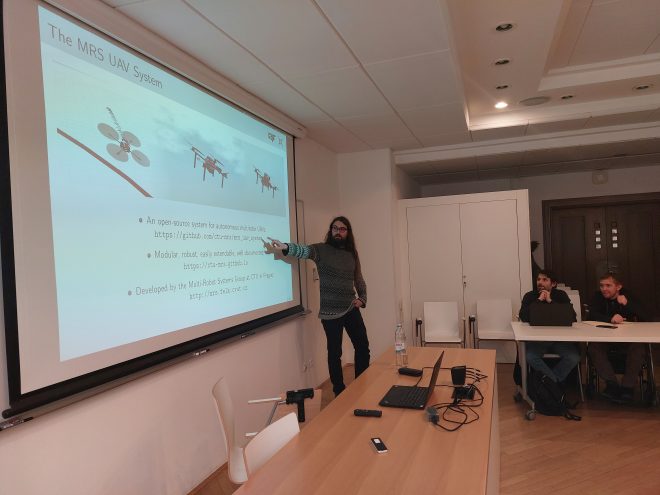During this last month of December, the first batch of IFROS students who are at UNIZG were able to enjoy these two seminars on “Applications of Multi-Agent Consensus Protocols for Social Network Opinion Dynamics ”, given by Dr. Kristian Hengster-Movrić and “Open Tools for Research, Deployment and Education with UAVs” given by Dr. Matouš Vrba.
Applications of Multi-Agent Consensus Protocols for Social Network Opinion Dynamics”
Consensus protocols are used very often for application where an agreement between agents (or robots) should be done in a decentralized manner over a communication network. Applications include distributed estimation, formation control etc. In the seminar, which was a part of the Multi-Robot Systems course, an introduction into discrete consensus protocols was given together with analysis of necessary conditions for reaching consensus. A special focus was then placed on applications of consensus for analysis of opinion dynamics evolution in social networks. By using consensus models for such systems, given the structure of interpersonal influences one can predict, analyze and control information and decision processes, that is, opinion formation. Seminar covered several key models used in such system such as French-Harary-deGroot model (1969), Friedkin-Johnsen permanent disagreement model (1990).
Seminar – Open Tools for Research, Deployment and Education with UAVs
In the first part of the seminar, a lecture will be held where past and current research projects of the Multi-Robot Systems group from the Czech Technical University in Prague and Fly4Future will be presented. The research focuses on autonomous micro-scale aerial vehicles and their practical use. The Multi-Robot Systems group has successfully participated in several international robotics competitions, including the DARPA SubT Challenge and MBZIRC 2017 and 2020. Further, the lecturer will describe the MRS UAV system developed in the MRS group that enables most of the research. The MRS UAV system is based on the Robot Operating System (ROS) and the PixHawk flight control unit, and consists of modules for UAV state estimation, trajectory tracking, control, and other components necessary for autonomous flight, all of which are freely available as open source. The modular and open-source nature of the system makes it suitable for research and educational purposes, and its robustness enables a fast transition from a prototype research project to an industrial application
The second part of the seminar is the hand-on exercise where the participants will have the opportunity to try working with MRS UAV system in the Gazebo simulator. A typical workflow will be demonstrated on an example problem that will be solved from scratch in C++ using the MRS UAV system.




